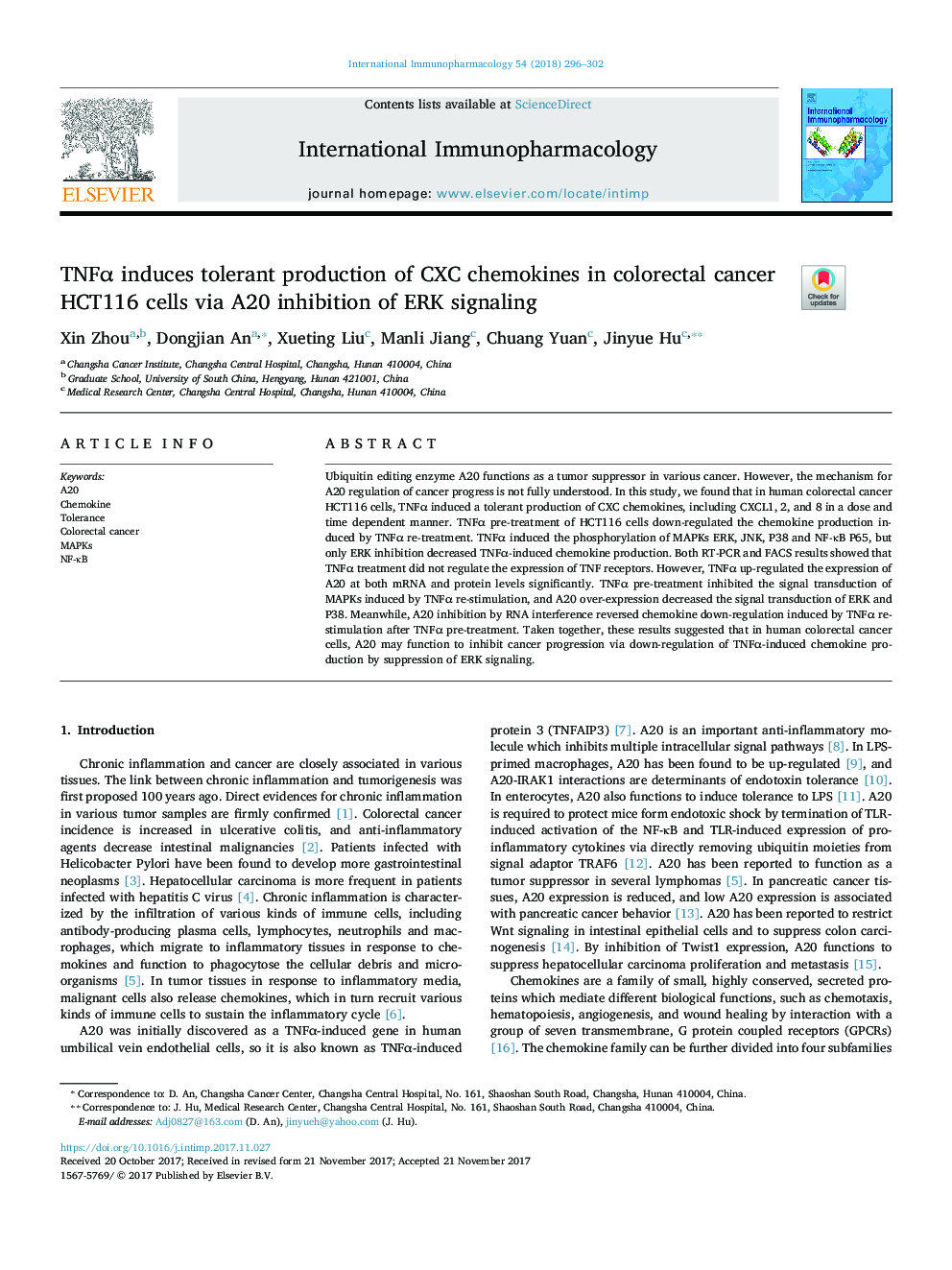| Article ID | Journal | Published Year | Pages | File Type |
|---|---|---|---|---|
| 8531586 | International Immunopharmacology | 2018 | 7 Pages |
Abstract
Ubiquitin editing enzyme A20 functions as a tumor suppressor in various cancer. However, the mechanism for A20 regulation of cancer progress is not fully understood. In this study, we found that in human colorectal cancer HCT116 cells, TNFα induced a tolerant production of CXC chemokines, including CXCL1, 2, and 8 in a dose and time dependent manner. TNFα pre-treatment of HCT116 cells down-regulated the chemokine production induced by TNFα re-treatment. TNFα induced the phosphorylation of MAPKs ERK, JNK, P38 and NF-κB P65, but only ERK inhibition decreased TNFα-induced chemokine production. Both RT-PCR and FACS results showed that TNFα treatment did not regulate the expression of TNF receptors. However, TNFα up-regulated the expression of A20 at both mRNA and protein levels significantly. TNFα pre-treatment inhibited the signal transduction of MAPKs induced by TNFα re-stimulation, and A20 over-expression decreased the signal transduction of ERK and P38. Meanwhile, A20 inhibition by RNA interference reversed chemokine down-regulation induced by TNFα re-stimulation after TNFα pre-treatment. Taken together, these results suggested that in human colorectal cancer cells, A20 may function to inhibit cancer progression via down-regulation of TNFα-induced chemokine production by suppression of ERK signaling.
Related Topics
Life Sciences
Immunology and Microbiology
Immunology
Authors
Xin Zhou, Dongjian An, Xueting Liu, Manli Jiang, Chuang Yuan, Jinyue Hu,
